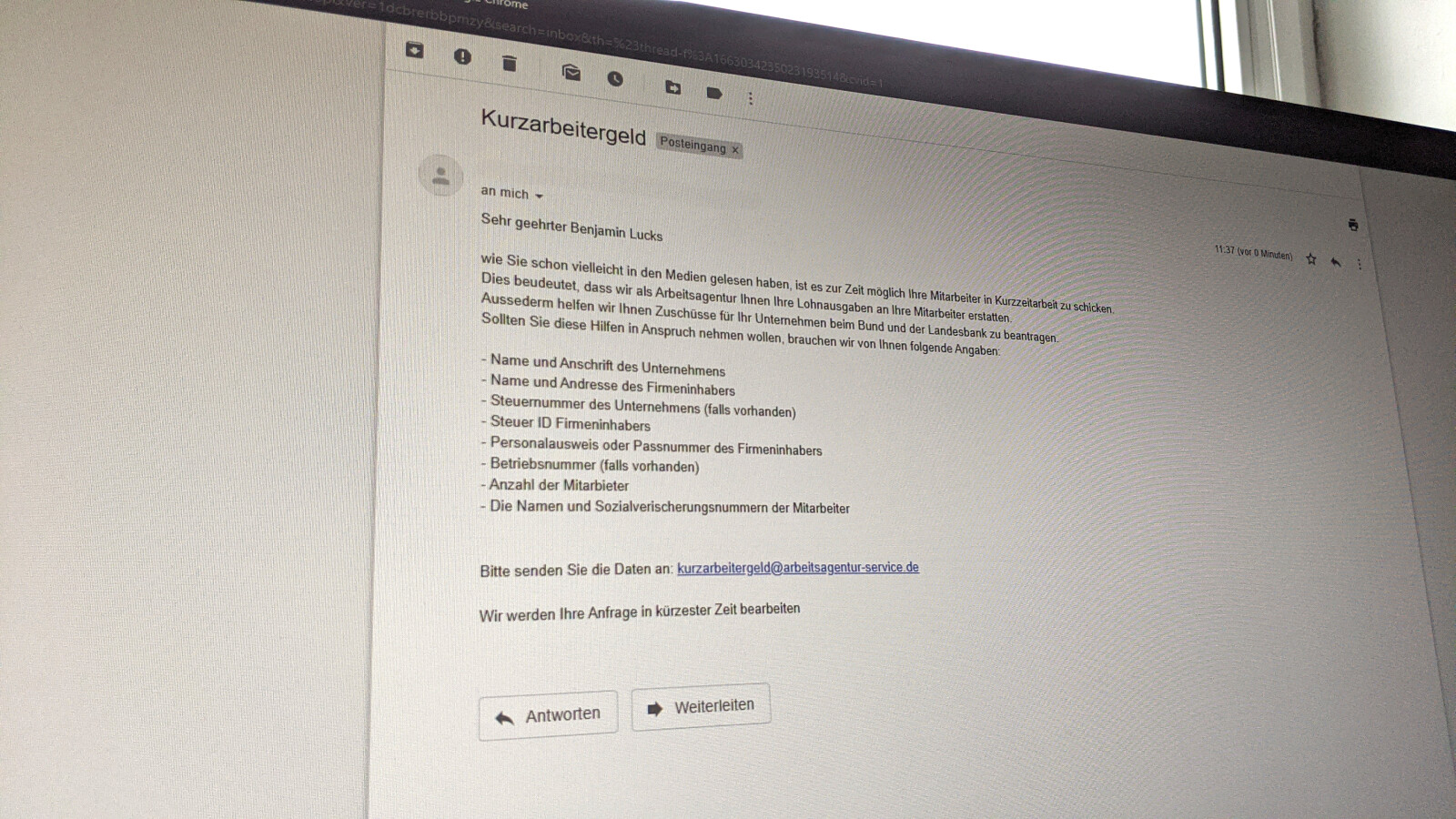This way you can recognize vulgar stitches
At present, emails from federal employment agencies need to be extra cautious. The criminals pretended to be employees of the authorities and granted short-term work benefits to the recipients. However, in fact, there is a very pretentious phishing scam.
Therefore, you can quickly and easily identify phishing emails.
The economic consequences of the corona pandemic forced many employers to report short-term work. As Der Spiegel reported, 470,000 short-term job applications were submitted in March. Criminals are taking advantage of this because they use people's plight to spread phishing emails.
As the Consumer Center reports, they are currently sending e-mails, disguised as the Federal Employment Agency. They guarantee you short-term work income and only require you to send your personal data to a stored email address. Under no circumstances should this be done. The full text of the email is as follows:
Dear username
You may have read it in the media, and currently you can dispatch employees for a short time.
This means that as an employment agency, we will reimburse your employees for your salary.
We also help you apply for grants for your company from the federal government and Landesbank.
If you want to use this help, we need you to provide the following information:
-Company name and address
-Name and address of company owner
-Company tax number (if any)
-Tax number company owner
-ID card or passport number of the company owner
-Company number (if any)
-number of workers
-Employee name and social security number
Please send the data to: [email protected]
We will process your request as soon as possible
There were many spelling errors in the email, and the employment agency also warned the scam. Of course, you should never send sensitive data such as your social security number or tax number via email. If the subject of the email you receive is "Short-term Work Allowance", you should definitely ignore it.
This is how you should deal with phishing emails
If you have received this email or another phishing email, you should not reply to the statement in the email under any circumstances. Usually, phishing emails threaten account lockout or fines. If you receive a suspicious email, you can forward it to the following address:
Have you received a suspicious email?
Phishing list
-
Spelling mistake? -
Do you require sensitive data? -
The official logo? -
Unknown sender?
In addition, we will notify you about new scams on the Internet every day. For many criminals, the corona pandemic is an opportunity to trap people online. For this reason, we have summarized in a special article for you what you should protect yourself from a corona crisis:
We will also keep you up to date on new scams on Facebook and Twitter. Subscribe to Netzwelt here and become one of the first to be warned about new viruses, phishing emails, etc.
6 items
Popular scams: this is how scammers try to deceive you online
Watch now
Keywords in this article
Current fraud warning
Image Source
Internet










